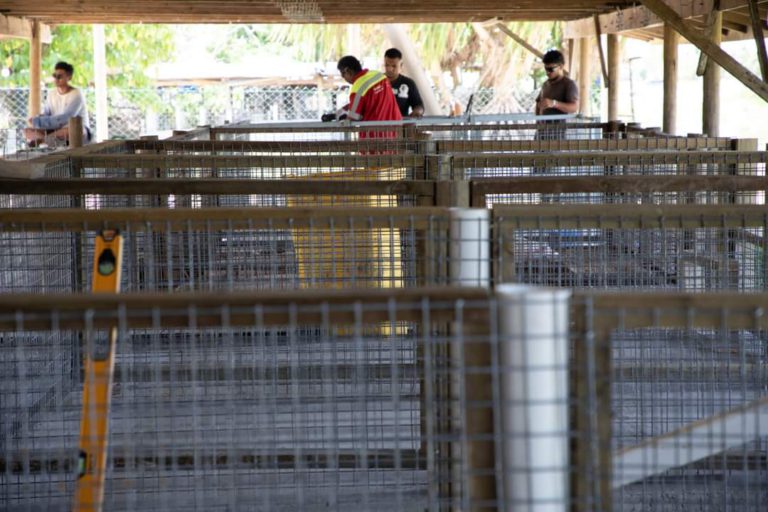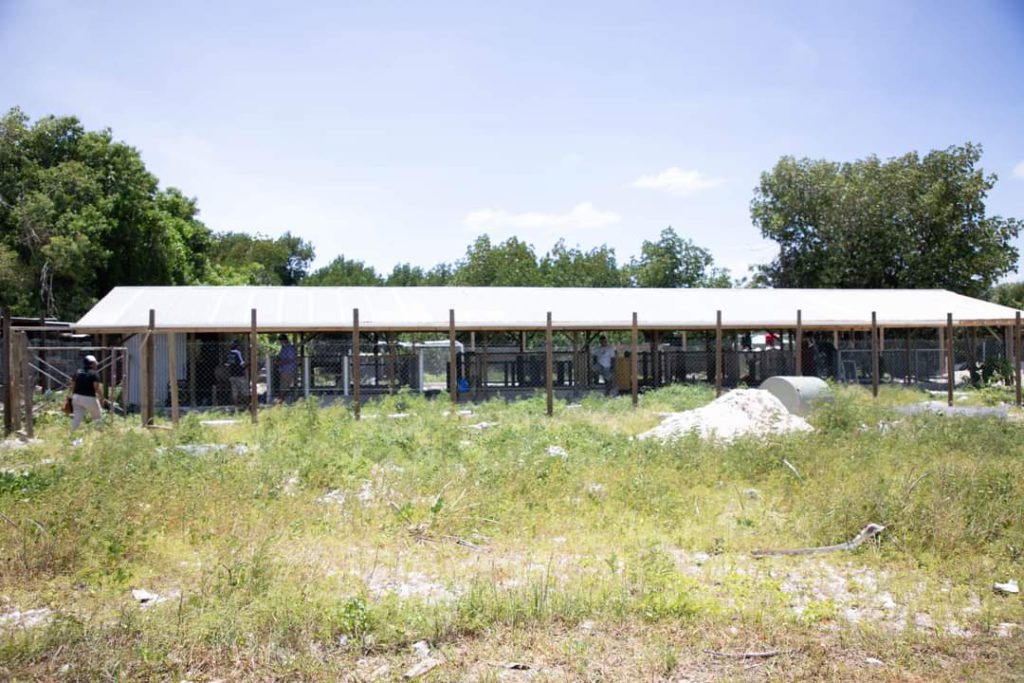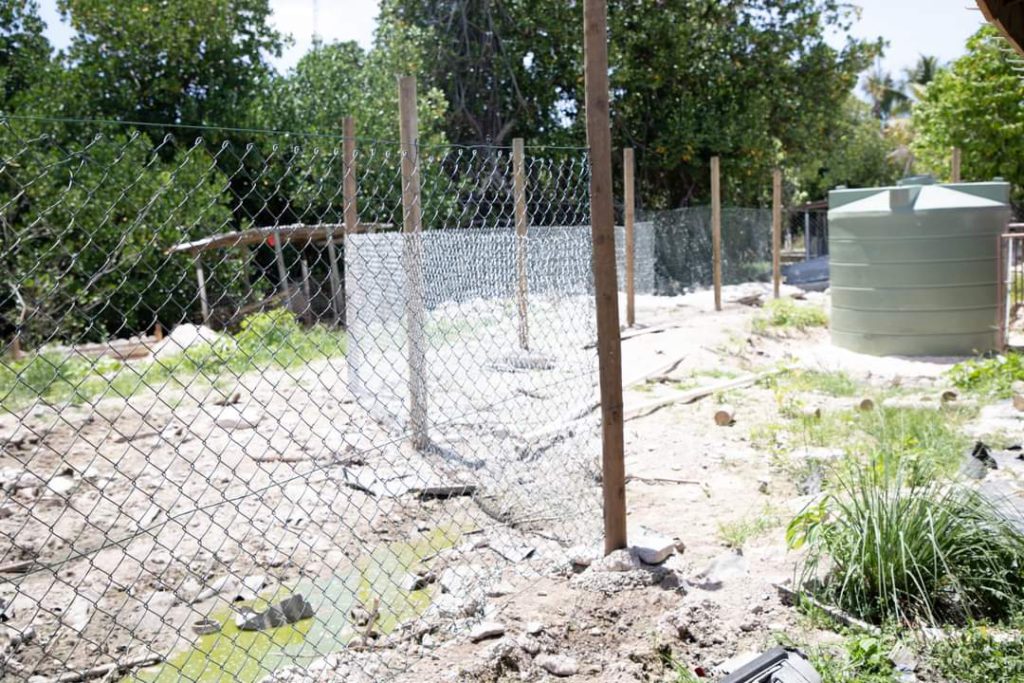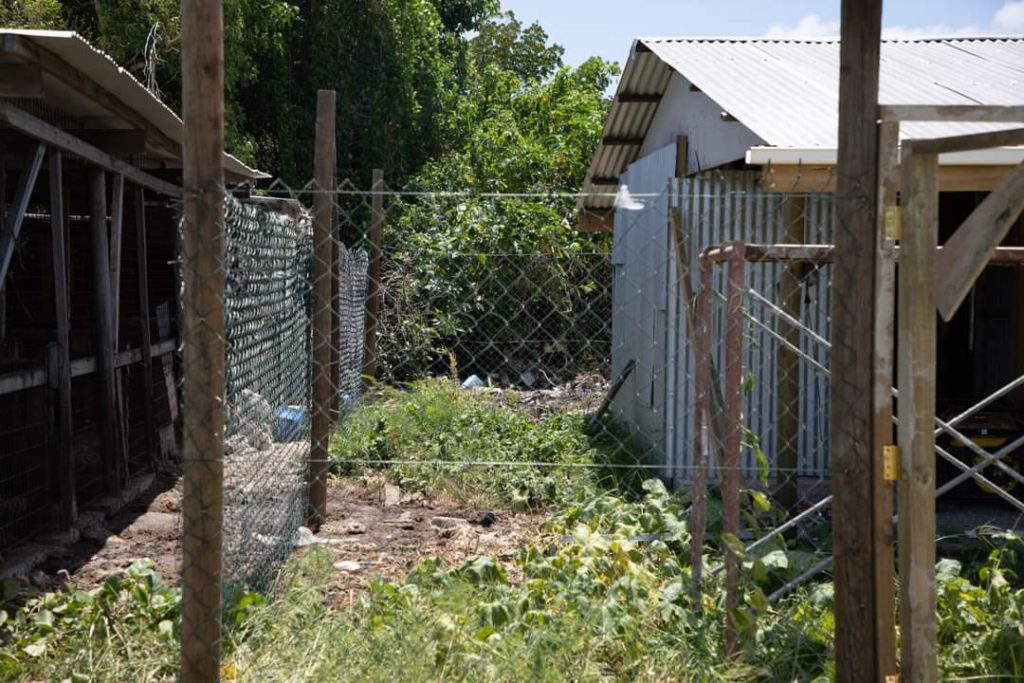News - Dec 19, 2022 Dry Litter Piggery Demo Site


A Dry Litter Piggery Demo Site has been established in Tuvalu – using large portion of “waste” previously heading to landfill (mulched woody vegetation) as bedding/lining for pig pens.
Organics in atoll nations have a high proportion of woody, high fibrous materials such as coconut fronds, panadas flaxes, and banana stems. The Tuvalu Department of Waste Management have an effective system to mulch this material using existing chippers, but to turn this material into effective compost requires a mixing with “high nitrogen” items such as fresh food, fish by-product, or manure – of which are not in abundant supply in Tuvalu.

A Dry Litter program is to use the mulch as bedding/lining of pig pens, providing a form of pre-processing of the material; by absorbing animal manure, the mulch attains the required nitrogen – creating an effective carbon-nitrogen balance.
Dry Litter programs provide additional benefits for animal welfare (animals have a more comfortable pen in comparison to lining of concrete or mud), and reducing water consumption and contamination run-off, through the mulch absorbing animal manure, cleaning of pens requires a simple sweeping, reducing the need for large wash downs.

“Once mulch is collected from the pens, it is then composted using bay-compost systems, resulting in a rich, organic soil amendment for our crop production”. Says Epu Falega the Tuvalu Director of Waste Management.
PacWastePlus has published the Composting Common Materials handbook to assist compost operators in the Pacific and Timor-Leste to obtain and incorporate other common organic materials into composting systems; increasing diversion of materials into a beneficial use and increasing the capacity and quality of locally made compost.

